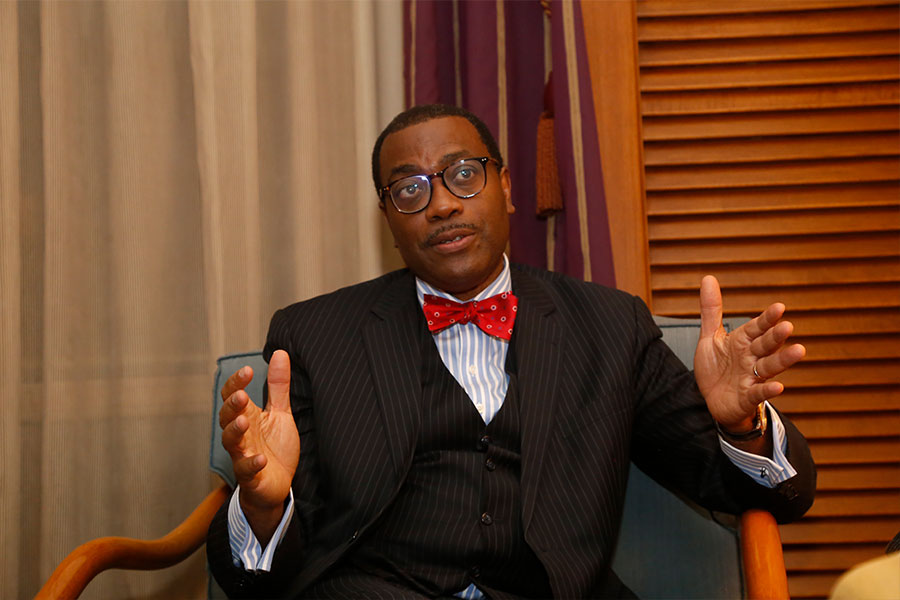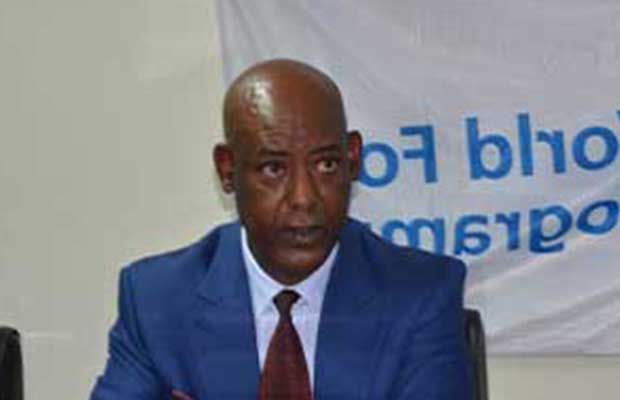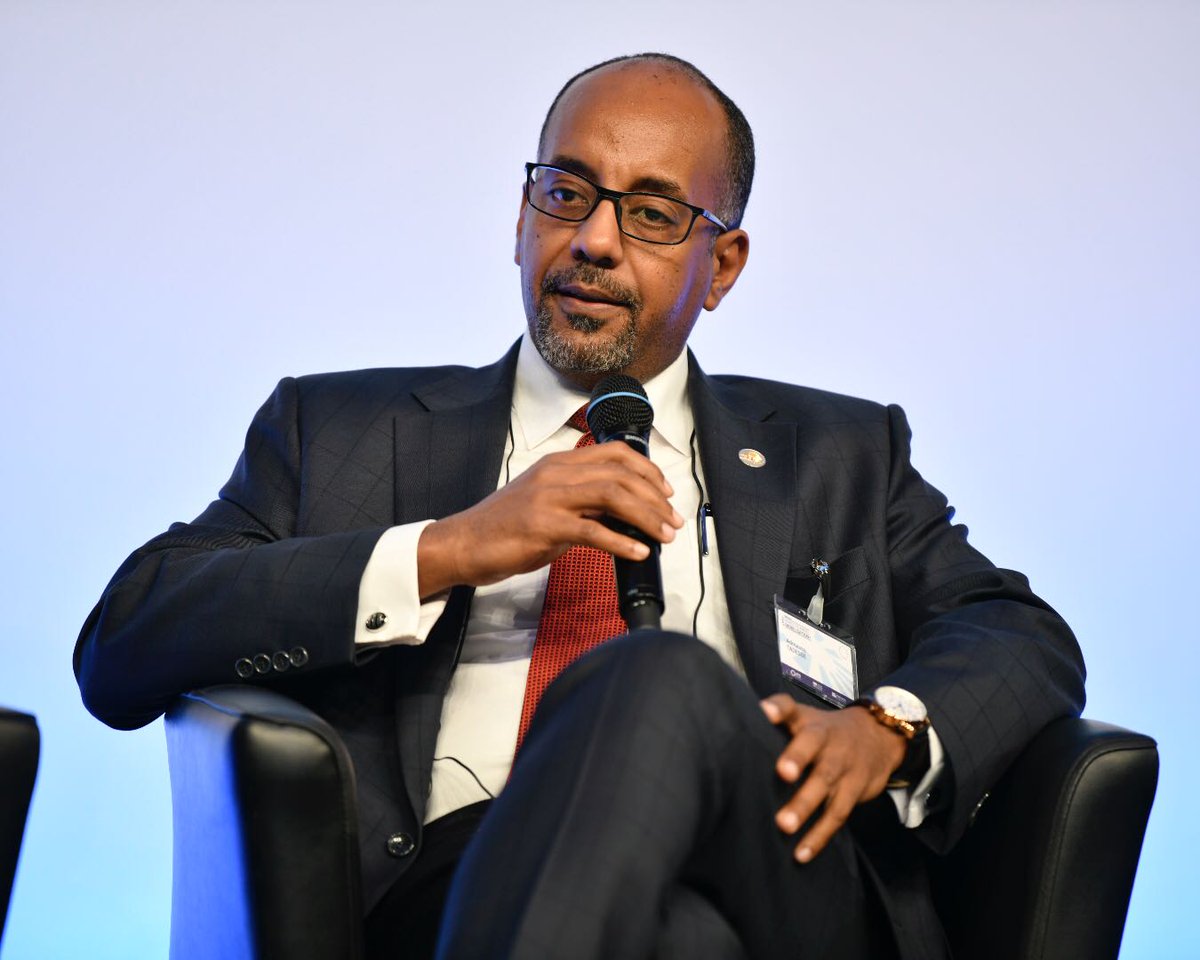
Exclusive Interviews | Feb 12,2022
Oct 31 , 2020
By Eden Sahle
Many Ethiopians were vexed with the statement United States President Donald Trump made about the Grand Ethiopian Renaissance Dam (GERD). It is utterly understandable.
I read some of his motivating books, and I met his daughter, Ivanka Trump, in person. She is a brilliant orator who praises her famous father endlessly.
From what I read from his books and heard about him from his daughter, I have come to regard him highly. His statement on the GERD was thus not up to the expectations I have of him from his extensive leadership experience in business and now in politics.
The statement is displeasing yet portending of good. It is unfortunate, because it was a reminder of how the continent is perceived globally. In the same token, it inspired a deeply politically divided people to come together to condemn his words in no uncertain terms.
Ethiopia is rightfully saddened by the President's televised phone conversation, mostly because it denied the credit to Ethiopia’s justifiable effort to strike a mutually beneficial water usage agreement. But the fact that the President could make such a comment that lacks wisdom portends the unsettling reality of being an African country.
We hear daily about the continent’s depressing situation. Forget the economy, but the politics of Africa and the state of human and democratic rights has created a highly negative image of the continent that, over half a century since decolonisation, it remains the perception of the outside world.
This is demonstrable with the negotiations around the GERD. Ironically, African heads of state meet every year under the African Union in Addis Abeba. They promise to solve African problems and provide African solutions. But it was only during the last leg of the negotiations that the matter of the GERD was even taken to the AU. In fact, on many of the challenges – economic or political – that the continent is faced with, AU is a latecomer, if it comes at all.
African leaders are a major part of the crisis that afflicts the continent. From poor development planning to artificially created droughts to periodic civil wars and abuse of democratic and human rights, their actions have left a traumatic impact on the continent’s citizens.
We should then not be shocked when a man, President Trump, that probably gets a large chunk of his information about Africa from American cable TV makes such a comment, with the assumption that it would inevitably lead to Egypt blowing up the Dam. It is right to wonder if such remarks would have been made about countries in any other continent. It is just as important to question how much racism but also the willful actions of our leaders contributes to this view.
Personally, it is not surprising to learn that many outside of Africa do believe that the two countries would come to a blow, although most observers state that this likelihood is very low. There simply is not the view that Africans have the political maturity to address differences of opinions and negotiate in good faith to allocate resources fairly.
African leaders are not known for standing up to what is right and just. They have made a name for themselves disregarding the interests and needs of their own people. They have remained tight mouthed, for the most part, when citizens of their neighbouring country are maltreated by their own government.
They come to power using violence, and later they get driven out of office by yet another bout of confrontation that is often destructive to the lives of citizens.
True, racism is real. Few outside Africa attempt to look under the surface and take a peek at the communities and individuals that make the continent rich with diversity. But that is not where all of the problem lies. Our leaders, in their exercise of power, have contributed to this image. Addressing the issue thus starts with cleaning house.
Africa deserves leaders that live up to their promises and are accountable instead of pointing fingers at everyone else except themselves. When leaders focus their energies and time on representing the people and their interests rather than crafting strategies to lengthen their hold on power, the world would surely begin to have a more nuanced and deferential understanding of our circumstances.
If we need to be infuriated, let us be outraged at our fellow African leaders who come to power through force and stay there by making use of similar tools. Leaders of respective countries should also engage with one another in goodwill.
Ethiopia, Sudan and Egypt must be focused on how they can mutually benefit each other and negotiate amicably. A fair and workable agreement, if all the sides are willing to compromise, is possible.
Each country manages its situation based on unique reasons such as political makeup, geography, and development goals of the nation. Developmental policies that apply to Egypt and Sudan probably may not make sense in Ethiopia and vice-versa. It is inevitable that the three nations have a complex matter to address.
If it comes then, it will be a deal that can portray their maturity, commitment to fairness and determination to peace.
PUBLISHED ON
Oct 31,2020 [ VOL
21 , NO
1070]

Exclusive Interviews | Feb 12,2022

Exclusive Interviews | Jan 05,2020

Sponsored Contents | Oct 24,2023

My Opinion | Oct 25,2025

Editorial | Oct 12,2024

Fortune News | Feb 11,2023

Radar | Oct 26,2025

My Opinion | Mar 09,2024

Sunday with Eden | Dec 26,2020

Exclusive Interviews | Nov 21,2018

Photo Gallery | 177757 Views | May 06,2019

Photo Gallery | 167970 Views | Apr 26,2019

Photo Gallery | 158668 Views | Oct 06,2021

My Opinion | 137005 Views | Aug 14,2021
Commentaries | Oct 25,2025

Dec 22 , 2024 . By TIZITA SHEWAFERAW
Charged with transforming colossal state-owned enterprises into modern and competitiv...

Aug 18 , 2024 . By AKSAH ITALO
Although predictable Yonas Zerihun's job in the ride-hailing service is not immune to...

Jul 28 , 2024 . By TIZITA SHEWAFERAW
Unhabitual, perhaps too many, Samuel Gebreyohannes, 38, used to occasionally enjoy a couple of beers at breakfast. However, he recently swit...

Jul 13 , 2024 . By AKSAH ITALO
Investors who rely on tractors, trucks, and field vehicles for commuting, transporting commodities, and f...

Oct 25 , 2025
The regulatory machinery is on overdrive. In only two years, no fewer than 35 new pro...

Oct 18 , 2025
The political establishment, notably the ruling party and its top brass, has become p...

Oct 11 , 2025
Ladislas Farago, a roving Associated Press (AP) correspondent, arrived in Ethiopia in...

Oct 4 , 2025
Eyob Tekalegn (PhD) had been in the Governor's chair for only weeks when, on Septembe...

Oct 25 , 2025 . By YITBAREK GETACHEW
Officials of the Addis Abeba's Education Bureau have embarked on an ambitious experim...

Oct 26 , 2025 . By YITBAREK GETACHEW
The federal government is making a landmark shift in its investment incentive regime...

Oct 27 , 2025
The National Bank of Ethiopia (NBE) is preparing to issue a directive that will funda...

Oct 26 , 2025 . By SURAFEL MULUGETA
A community of booksellers shadowing the Ethiopian National Theatre has been jolted b...